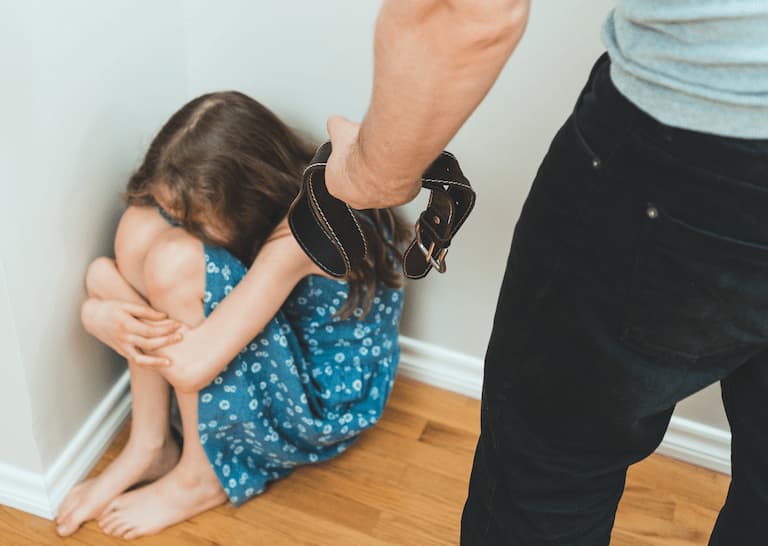It is not uncommon for divorcing couples to wonder if the other parent can safely and effectively care for their child, especially if one parent has shown signs of being mentally unstable. If you think that’s your situation, how do you prove a parent is mentally unstable?
Here are seven ways to prove a parent is mentally unstable:
- Flag psychiatric issues.
- Present evidence of substance abuse.
- Present evidence of child abuse.
- Present evidence of domestic violence.
- Establish that they can’t make decisions.
- Prove that they can’t communicate with the child.
- Prove that they have harmed the child.
In this article, I’ll explain how you can prove that a parent is mentally unstable and therefore unfit to care for and raise a child.
Ready? Then Let’s get started.

1. Flag Psychiatric Issues
If a parent has an unpredictable, aggressive, or progressive mental disorder, a family court can consider them mentally unfit to take care of a child.
Sometimes an individual can try to conceal their mental health issues so as not to lose their custody or visitation rights.
However, you can present the following types of evidence to prove that a parent has psychiatric problems that can negatively affect the well-being of the child in the future:
- Medical records of the parent highlighting their mental health issues
- Results of a psychiatric evaluation that the court may have ordered
- Records of disability benefits received by the individual for their mental health issues
- Prescriptions for the individual showing purchases of psychiatric drugs
- Records of the individual’s regular visits to a psychiatrist
- Testimony by a social welfare organization or a mental health professional
- Police reports indicating that the person had exhibited unstable behavior in the past
- Communication, such as emails, letters, messages, videos, pictures, and social media posts that indicate unstable behavior
The court decides whether a parent is mentally unstable to take responsibility for a child based on the following considerations:
- Does the psychiatric illness prevent the individual from creating a safe living environment for the child?
- Does the parent’s illness prevent them from taking care of the child’s needs appropriately?
- Can the parent’s mental illness make them prone to harming the child physically or psychologically?
- Does the person’s mental illness prevent them from functioning independently and safely?
- Will the person’s mental health status improve or deteriorate over time?
- Can the parent’s mental health condition be cured or managed with therapy or medication?
- Is the parent willing to seek professional help to manage their mental health condition?
The family court considers the severity of the parent’s mental health condition while deciding custody and visitation matters. The court can grant a parent with a severe mental illness limited and supervised visitation rights.
The court can also order the parent to seek professional mental health support to keep the condition under control. It can increase visitation times and lift custody restrictions if the parent’s mental health improves.
However, it is not only the presence or absence of a psychiatric condition that determines whether a parent is mentally capable of taking care of a child.
Read on to find out how else you can prove that a parent is mentally unstable and unable to care for a child.
2. Present Evidence of Substance Abuse
According to several studies, children of substance-abusing parent(s) are at greater risk of adverse emotional, social, and behavioral adjustment problems than their peers whose parents do not abuse substances.
For instance, kids of substance-abusing parent(s) have twice the risk of developing an alcohol or drug use problem by early adulthood than children whose parents do not abuse substances.
Kids in the former group also face increased cognitive and academic challenges.

What is disturbing is that these adverse outcomes have been noted in children as young as 2-3 years of age.
So, a court considers a parent’s “habitual or continual” use of alcohol and “habitual or continual” use of illegal controlled substances or prescribed controlled substances when deciding custody or visitation arrangements for a child.
However, the court might require evidence of substance abuse in a parent to support the allegations. The following are considered evidence of substance abuse in a parent and can be presented in court:
- A conviction for illegal possession or use of a controlled substance
- The parent’s admission of their substance abuse disorder is made through a written declaration or at a live deposition or hearing
- Police report
- Report from a licensed drug rehabilitation center
- Report of a test for illegal use of a controlled substance or alcohol that the court may order
- Report of substance abuse screening and assessment conducted by a professional
3. Present Evidence of Child Abuse
Childhood abuse and neglect can have devastating consequences on children that can last well into adulthood. The following are some of the adverse outcomes of child abuse:
- Physical Effects: These can range from minor injuries to debilitating brain damage and even death.
- Cognitive Effects: These manifest as attention problems and severe learning disorders.
- Psychological Effects: These can range from chronic low self-worth to severe dissociative disorders.
- Behavioral Effects: These can range from an inability to form healthy interpersonal relationships to addictive disorders and violent behavior.
The long-term consequences of childhood abuse affect both the individual and the society they live in. So, courts take cognizance of any evidence of child abuse before finalizing custody or visitation arrangements.
You can present the following types of evidence to prove child abuse and imply that a parent is mentally unstable to take responsibility for a child:
- Previous record or conviction of child abuse that may also involve another child
- Medical records of the child that show they have been abused physically or psychologically
- Testimonies of people or social welfare organizations that have witnessed acts of abuse
- Testimony of the child that is granted at the discretion of the family court judge and only if the child is considered to be “mature” and “competent” enough to provide evidence
You can petition the court to allow your child to testify. This can work well if the child is mature enough to narrate instances of abuse or neglect without fear or favor.
Keep in mind that although there is no age limit for a child to provide testimony, the judge grants permission only if the court feels the experience won’t adversely affect the child’s emotional well-being.
The court may corroborate the testimony of a child.
4. Present Evidence of Domestic Violence
According to the U.S. Department of Health and Human Services, more than 15 million children in the country have witnessed incidents of domestic violence at least once.
Children who are witnesses to or are victims of domestic violence are prone to developing a host of physiological and psychological issues that can last a lifetime.

The long-term effects of domestic violence on children can be:
- Psychological conditions like depression, low self-esteem, and anxiety
- Physical conditions like diabetes, obesity, and heart disease
- An increased tendency to enter into abusive relationships
- An increased tendency to become abusers themselves
- Greater risk of developing substance abuse issues
- Difficulty forming healthy interpersonal relationships
A family court always acts with the child’s best interest in mind. As such, a court evaluator thoroughly investigates any accusation of domestic violence.
You can furnish the following types of evidence to support your allegations:
- Police records of arrests made on suspicion or allegation of physical violence
- Evidence of the person’s past conviction for domestic violence
- Any photograph or video footage of the incident that was captured by a home security camera
- Testimonies of other people who may have witnessed such an incident of domestic violence
- Medical records of you or your child that prove you were hurt during an incident of domestic violence
- Testimonies from acquaintances, members of the community, or co-workers that prove the parent had been involved in other acts of violence in the past
5. Establish That They Can’t Make Decisions
Until they are mature, a child is dependent on one or both parents to help them navigate life safely.
A parent has to be emotionally mature and have adequate common sense to make decisions on behalf of their child on issues like:
- Curfew hours
- Staying out of the house
- Choice of friends
- Recreational activities
- Taking up work
- Media consumption
A lack of parental supervision and guidance can have a lasting negative impact on the child manifesting in traits like:
- Low self-worth stemming from a lack of boundaries
- Lack of self-discipline
- Inability to make decisions
- Lack of ambition
- Gullibility
- Being easily lured into criminal activities
- A tendency to indulge in risky behaviors like having unprotected sex and taking drugs, especially during the teenage years
Before deciding on custody and visitation rights, a family court would want to know that a parent can make age-appropriate decisions on behalf of their child. To prove their inability, you have to furnish evidence of incidents, such as:
- The child handles sharp and dangerous objects unsupervised.
- The child is out of the house during conventional curfew hours.
- The child consumes alcohol while still being underage.
- The parent keeps illicit drugs in the house within easy reach of the child.
- The child hangs out with people of questionable intent.
You can provide evidence in the form of photographs, videos, and testimonies of other people. For instance, the testimony of the bartender at the local bar can corroborate your allegation that your underage child has been frequenting the bar with a fake ID while in custody with the other parent.
Lack of parental supervision constitutes neglect and, if proven, can compel the court to take away the right to physical custody.
6. Prove That They Can’t Communicate With the Child
A parent needs to have a functional relationship with the child to be able to anticipate and provide for their needs.

The parent should be able to enforce rules and boundaries and get the child to respect these. On the other hand, the child should feel comfortable enough with the parent to share their concerns, express their needs, and seek counsel.
But if a parent is unwilling to communicate or at least improve communication with the child, family court might rule against providing custody. Communication is a vital part of parenting and plays a huge role in how a child turns out.
To prove that a parent is unable to communicate with the child, you can provide evidence like:
- The child’s testimony if the family court judge feels that the child won’t be emotionally affected by the experience
- Testimonies by other people or social welfare organizations
- Testimony by a mental health professional indicating that the parent has a psychological condition that prevents them from being empathetic to or understanding another person’s needs
7. Prove That They Have Harmed the Child
Very few pieces of evidence are as compelling as proof that a parent’s behaviors or actions have harmed the child. You can provide proof like:
- Medical records of the child to prove they have been physically or psychologically harmed
- Testimonies from other people or social welfare organizations that have witnessed incidents of physical or emotional abuse
- Police reports
- The child’s school records that indicate a decline in academic performance or developmental delays
- Testimony by a teacher or a counselor to prove that the child’s poor academic performance or psychological issues arise from parental neglect
- Your journal with dates and details of when the other parent’s actions harmed the child
Proof that a child has been subjected to harm either due to neglect or intentionally is taken seriously by the court and can lead to loss of custody.
Therefore, it’d be best to provide as much evidence of intentional harm as it’ll help prove that a parent is mentally unstable.

Key Takeaways
A family court judge does not decide custody and visitation rights based on allegations and accusations.
The court can appoint an evaluator to thoroughly investigate your claims that your former spouse and your child’s other parent are mentally unstable to perform parental duties.
You can strengthen your case by providing compelling evidence to prove the following in the other parent:
- Psychiatric illness
- History of physical, mental, or sexual abuse
- Inability to supervise a child safely and effectively
Testimonies from eyewitnesses, health professionals, social care workers, and the police are crucial to support your claims.
Image by Kleiton Santos from Pixabay
Of course, I have to add that I am not a lawyer, nor do I know the laws in your state or country. I am, however, divorced (twice) and have recent experience going through one. However, my comments and articles should not be taken as legal or professional advice. If you need legal or professional advice you should consult a professional in your area.
